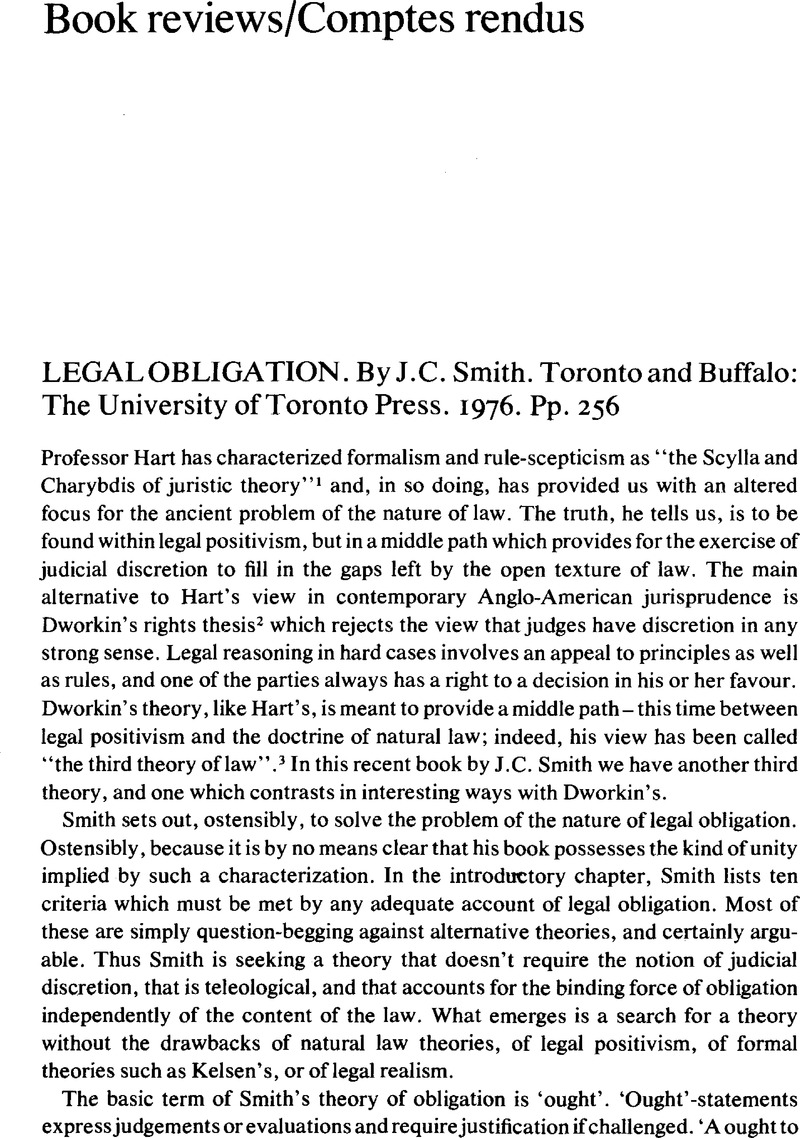No CrossRef data available.
Published online by Cambridge University Press: 05 May 2010

* I wish to thank the Canada Council for support of research in philosophy of law. I wish also to thank Janet Keeping for helpful comments on material relating to this review.
1 Hart, H.L.A., The Concept of Law, Oxford University Press, 1961, p. 144Google Scholar.
2 The relevant papers are collected in Dworkin's recent Taking Rights Seriously, Harvard University Press, 1977Google Scholar.
3 See Mackie, John, “The Third Theory of Law”, Philosophy and Public Affairs, Vol. 7, No. 1, 1977, pp. 3–16Google Scholar.
4 Smith, J.C., Legal Obligation, University of Toronto Press, 1976, p. 37Google Scholar. Further quotations from this book are noted in parentheses in the text: (LO, p. )
5 See Legal Obligation, pp. 107–8
6 See especially the second and third papers in Taking Rights Seriously.
7 A similar but much fuller treatment of the issues discussed in the last two paragraphs can be found in Strand, David, Judicial Discretion, unpublished Ph.D. dissertation, The University of Calgary, 1977Google Scholar.
8 This case is discussed in some detail by Smith, beginning on p. 177.
9 See especially “Hard Cases”, which appears as the fourth chapter in Taking Rights Seriously.
10 Taking Rights Seriously, p. 84.
11 Fuller discusses the purposive nature of law in The Morality of Law, Yale University Press, 1964Google Scholar. See also Hart's review of Fuller in 78 Harvard Law Review, (1965), pp. 1281–96 and especially Fuller's “A Reply to Critics”, which appears as Chapter V of the second edition of The Morality of Law, 1969.
12 See, for example, Coval, S.C. and Smith, J.C., “The Causal Theory of Law,” Cambridge Law Journal, 36(1), April 1977, pp. 110–151CrossRefGoogle Scholar.